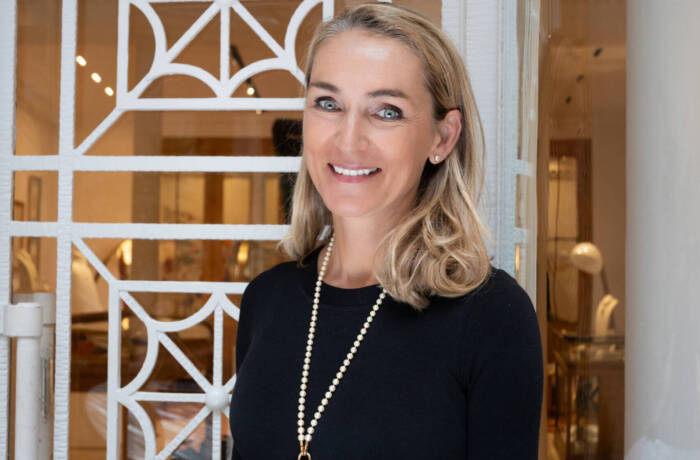
Summer Compass Jellyfish. Photo by Theo Vickers
The protection of biodiversity is becoming a key topic in the sustainability sector. Now we need to measure our economies’ effects on biodiversity fairly and effectively, says Markus Müller in an interview with Darius Sanai

Marküs Muller
LUX: How do we measure our effect on biodiversity, or compare worms with whales?
Markus Müller: We need to find metrics that account for local specifics but are globally comparable. There is a parallel with economic activity, because humans live, produce and consume locally, yet we have found global metrics to measure the economics of human interactions.
LUX: What is the most important measuring tool in the context of nature?
MM: One important metric is the Mean Species Abundance indicator, or MSA, which identifies the impacts of an economic activity on the mean species in a designated local area. It indicates the abundance of native species in a disturbed ecosystem relative to undisturbed ecosystems. Another measure is the Biodiversity Intactness Index, or BII. Both can help us obtain information around an ecosystem’s ability to deliver the ecosystem services we depend on, and understand the influence of economic activity on nature.
LUX: But won’t the MSA in a desert have a different metric to one in a rainforest?
MM: The ingredients are different, but it is about the amount of species. We have business activity in a location and from that we get data on its pressure and impact. That shows how the MSA is clustered according to the activity in terms of climate change, land use, nitrogen deposition, hunting, road disturbance and fragmentation.
Follow LUX on Instagram: luxthemagazine
LUX: Is the metric accepted universally?
MM: It is getting more recognition by various institutions and participants. However, our goal should not be to have a universally accepted metric for its own sake; it should be on accounting for local specificities with a methodology that, in principle, can be applied globally. It is not 100 per cent perfect, but, given the need for urgent action, as made clear by the Intergovernmental Panel on Climate Change, the IPCC, I advocate not waiting till scientists have the perfect metric.
LUX: How will the metrics affect business?
MM: When we know the effect of a business activity on the MSA, we will then know the biodiversity cost of the activity, and we can bring that into the decision-making process around it.
LUX: Is the aim to have a tax or other regulation on businesses that affect the MSA?
MM: Yes. The disclosure of a company’s MSA would allow the market to better price its exposure to nature– and climate-related risks, and take these factors into account for a valuation.
LUX: Would it work like carbon credits?
MM: Biodiversity credits are not comparable to carbon credits in a key sense because, other than for the actual removal of greenhouse gas emissions, carbon credits are used to compensate for current carbon use. Biodiversity credits must be purely an incentive not to destroy biodiversity, not to offset its loss. We can use economic incentives, such as reduced taxation, or a market system in which participants exchange credits.
LUX: How will the nature market develop?
MM: It will likely develop as we’ve seen equity or fixed-income markets develop. I would add the caveat that we should never monetise nature, but understand its value and what it gives us, so we can protect the value that ecosystem services provide, while enabling their uninterrupted flow. We need to prioritise the intactness of nature.

Photo by David Clode
LUX: How will governments regulate this?
MM: It is a question of the governance of nature. If we do not know how to govern nature, we also do not know what kind of mechanism to use to manage and assess its governance. For example, effective governance also means you need to include local communities into the responsibility of governing these resources.
LUX: Is there the desire among governments and voters to make this happen?
MM: On the one hand I think, yes; on the other, it requires uncomfortable decisions. So we need to remind ourselves again about economics and diminishing marginal utility. Humans will act in a familiar pattern for as long as the marginal utility is positive. We only change when it is no longer possible to proceed as we were.
LUX: Will listed companies make decisions based around biodiversity incentives?
MM: Yes, regulation is going in this direction. We see it with 30 by 30 – the initiative to create protected areas across 30 per cent of Earth’s land and sea by 2030. More than 100 countries are signed up. This development must not be limited to a specific region like Europe, we need a joint framework; even better, a joint narrative.
LUX: Is there a risk that companies make decisions based on one factor – biodiversity at the expense of carbon emissions, say?
MM: Yes, this is a risk of sustainability. We see it as a goal but, like economics, it is not a goal but a tool. Ideally, my role will be redundant in 20 years, as sustainability will be incorporated into everything. I think, in time, MSA or BII will be comparable indicators to CO2 emissions.
Read more: Leaders on Leaders: the people saving our planet
LUX: What would you say to an investor who says, “I just invest to make money”?
MM: I would say this way of thinking belongs in the past. We have to acknowledge that a high negative impact on nature is a financial risk as well as an environmental one. Nature-based risks – and opportunities – will materialise and have an impact on a portfolio. Companies not taking these into account, through an adaptive strategy, will have to pay a higher price in the future.
LUX: In five years, will a private-equity fund take MSA into account in decision-making?
MM: Yes, I believe so. I think it will play an increasing role in impact investing, but it will also play a role in the consumer-goods space.
LUX: If you were in charge of the world, what would you ask people to do?
MM: Go back to our roots. Think local, act global. Take account of nature, because we are a part of it. It is naive to disregard the system we are dependent on. We can’t do that any more.
Markus Müller is Environmental, Social and Governance (ESG) Chief Investment Officer at Deutsche Bank’s Private Bank








